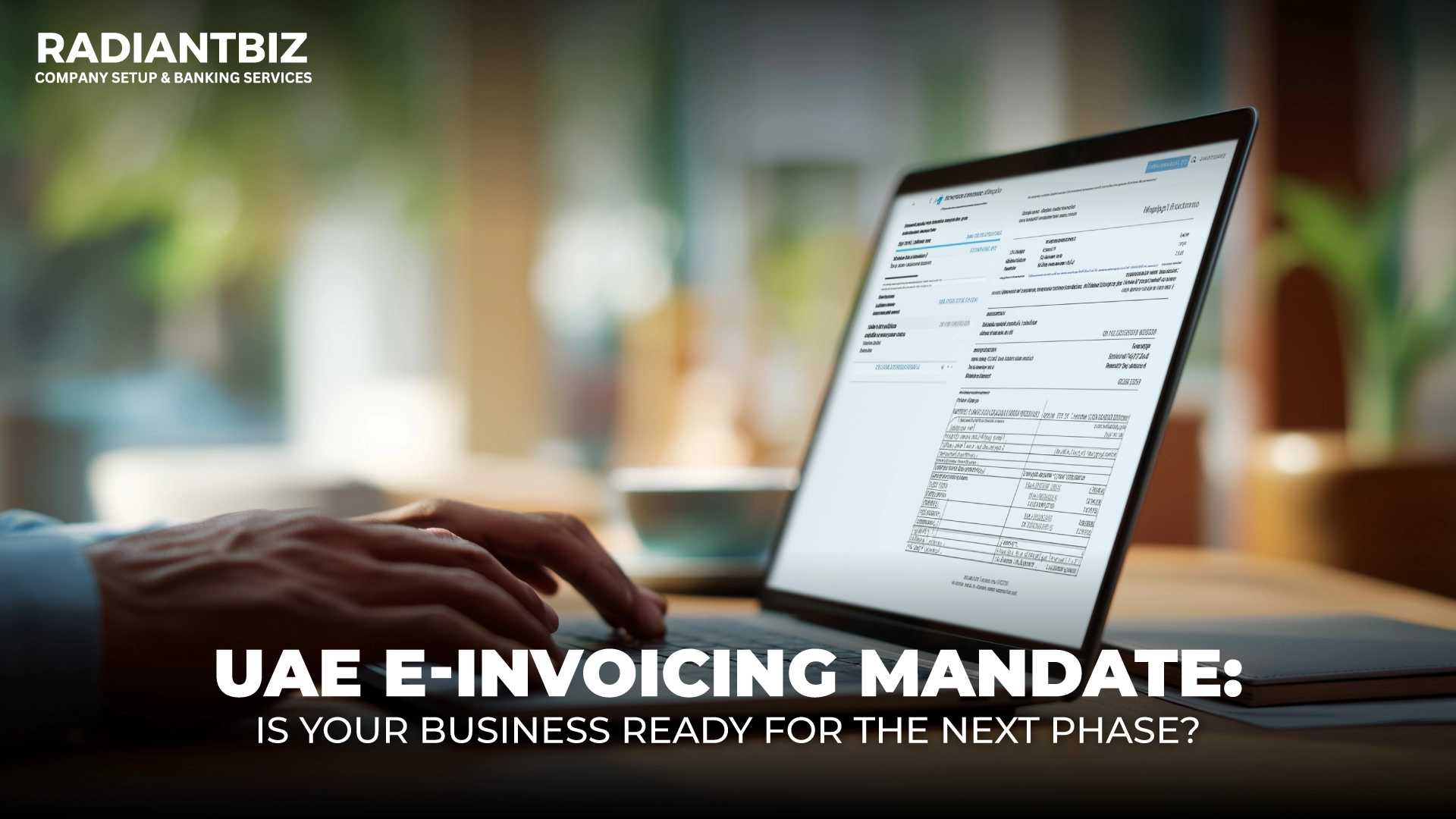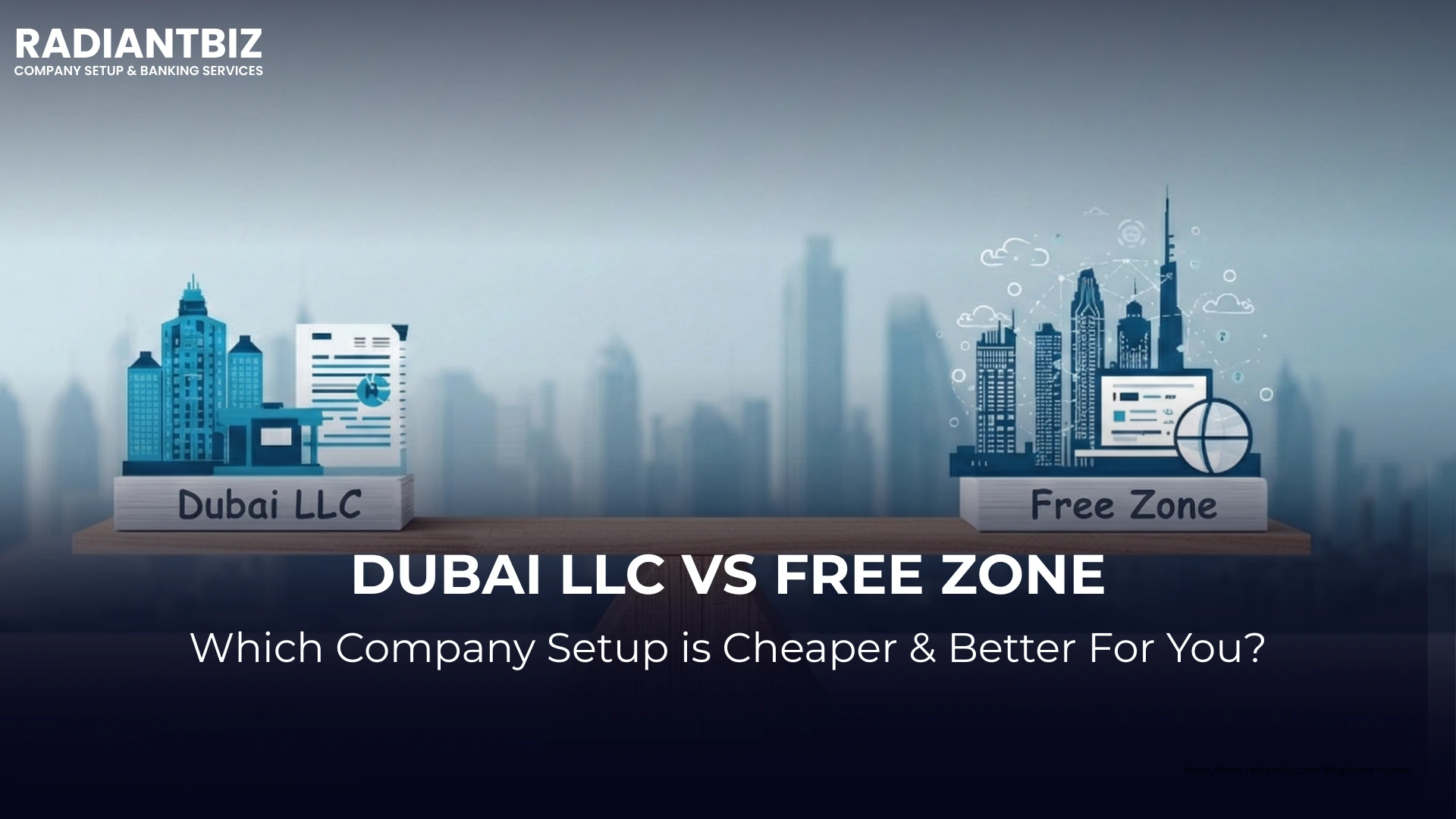UAE E-Invoicing Mandate: Your Complete Compliance & Readiness Guide


Table of Contents
UAE E‑Invoicing Mandate: Is Your Business Ready for the Next Phase?
With the UAE racing ahead with its digital-first economy plans, the transition to e‑invoicing is no longer a question of if but when. Following in the footsteps of Saudi Arabia's ZATCA (Zakat, Tax and Customs Authority), the UAE e‑invoicing mandate 2025 is now a pillar feature of the nation's present tax and digital revolution. Businesses of all sizes, and VAT-certified businesses in particular, are being urged to take action — not just to comply, but to thrive in a new era of openness, automation, and efficiency.
As a company director, accountant, or financial controller based in the UAE, this report will guide you through what e‑invoicing is, how to prepare, and why getting ahead of the mandate is critical.
What is E‑Invoicing and Why is It Being Implemented?
E-invoicing is the electronic generation, exchange, and storing of tax invoices in a structured digital format — typically XML or PDF/A-3 with XML data included. It eliminates paper or manually printed invoices and seamlessly integrates into government tax administrations.
Why is it used, however?
Globally, tax authorities are adopting e‑invoicing to enhance VAT compliance, reduce fraud, and make audits more efficient. The UAE is not exempt. The UAE e‑invoicing requirement 2025 is part of an ambitious program to reengineer the taxation administration within the nation while emulating regional best practice — specifically that seen in ZATCA e‑invoicing compliance rules applied within Saudi Arabia.
For businesses, the benefits go beyond compliance. E‑invoicing allows invoicing in real-time, minimizes human errors, accelerates VAT refunds, and integrates seamlessly into digital accounting software.
UAE's E‑Invoicing Timeline and Phases
The Federal Tax Authority (FTA) is adopting e‑invoicing in phases, migrating increasingly away from manual to full digital integration.
Phase 1: Voluntary Adoption (2023–2024)
Businesses were encouraged to explore e-invoicing software in the UAE, assess system readiness, and begin digitizing invoice processes. Some big firms have already initiated pilot programs with FTA-accredited platforms.
Phase 2: System Integration Starts (2025)
This is the critical year — the UAE e-invoicing mandate 2025 will begin becoming a reality. All VAT-certified businesses will be required to issue UAE digital tax invoices that are formatted, certified, and sent electronically to the FTA in near real time.
Phase 3: Full Implementation and Real-Time Clearance (By 2026)
Firms will have to link their invoicing systems to the FTA tax platform via APIs. All invoices will have to be digitally cleared or transmitted in real-time, just like the model of ZATCA's Phase 2.
The UAE phased launch is a replication of the Saudi Arabian approach, with time given to firms to adapt and implement their systems. But do not think twice about it — non-compliance will be punished.
Who is Covered by the UAE E-Invoicing Mandate?
The e‑invoicing obligation will finally reach all VAT-certified UAE enterprises, of any size and sector. They include:
- Large companies using ERPs and advanced finance systems
- SMEs and new ventures producing frequent VAT invoices
- Freelancers and consultants with Trade Licenses or freelance licenses
- Retailers and e‑commerce portals, where size and automation are the mantras
Although some micro-businesses or B2C companies may receive delayed enforcement dates or exemptions from the outset, they will eventually be brought into scope. All taxable businesses operating in the UAE must begin reviewing their processes and systems with effect from now on.
Salaries Requirements Under the Mandate
In order to meet the UAE e‑invoicing mandate 2025, businesses need to send structured invoices with the following information:
- A unique invoice number and timestamp
- Supplier and customer (TRN)
- Line-item data such as unit prices, discount, and VAT allocation
- An electronic verification QR code (especially for B2C invoices)
- A digital signature to prove authenticity
- Submitting to the FTA's e-invoicing platform for clearance or warehousing
The UAE digital tax invoice will need to be stored securely for a period not less than five years, with access to audit or tax inspection made possible. PDFs, handwritten invoices, or unstructured Excel will not be sufficient anymore.
Invoices will need to be machine-readable and tamper-evident, and they'll need to be connected to a centralized report system regulated by the FTA.
Technology and Integration: What Your System Needs
To send compliant e-invoices, companies would need to incur costs for e‑invoicing software UAE providers who are certified or compatible with FTA needs. The software should be able to:
- Generate XML or hybrid PDF/A-3 invoices
- Integrate with ERP, accounting, or POS systems
- Electronically sign invoices and include QR codes
- Integrate with FTA APIs for real-time or batch filing
- Save invoices in secure, searchable databases
Companies may also choose to develop their own systems internally. However, it is expected that the majority of mid-sized businesses and SMEs will need to resort to third-party e‑invoicing suppliers with plug-and-play solutions.
Certain regional and international corporations already have their platforms prepared for UAE-specific capabilities, as they did for Saudi Arabia's ZATCA implementation.
Benefits of Early Adoption by Business
Being at the forefront of the UAE e‑invoicing mandate 2025 offers several tangible advantages.
First, early adopters can avoid the last-minute scramble:
Waiting until enforcement begins could lead to rushed integrations, staff confusion, or non-compliance penalties. By planning ahead, companies can test and refine their systems at their own pace.
Second, e-invoicing improves operational efficiency:
Manual keying errors are reduced to a minimum. Payment is reconciled faster. VAT reporting is cleaner, faster, and more accurate. With integration, what was done in hours previously now takes minutes.
Third, compliance increases credibility and trust:
Customers and suppliers alike like to deal with companies that are digitally advanced and compliant with regulatory standards.
Finally, early compliance can facilitate faster VAT refunds:
Due to accurate and timely invoice data — an important advantage for businesses with substantial input tax credits.
Disadvantages Businesses Might Face
Despite the advantages, e‑invoicing can be difficult to implement. The majority of businesses, especially SMEs, might face:
- Initial software upgrading or purchase costs of compliant tools
- Training needs for accounting, sales, and operations staff
- Data migration issues, especially from legacy systems
- Security risks involved in storing invoices and digital signatures
- Difficulty in vendor selection as not all software will be FTA-compliant
All these challenges can be overcome but exceptions require planning, budgeting, and expertise you can trust.
Fines for non-compliance
While actual penalties in the UAE e‑invoicing mandate 2025 have not yet been officially declared, we can expect a model similar to ZATCA e‑invoicing compliance:
- Fines for sending unstructured or non-compliant invoices
- VAT returns rejected or flagged
- Audits due to lack of accurate invoice records
- Administrative penalties for on-going non-compliance
In addition to legal consequences, companies that procrastinate regarding compliance jeopardize cash flow, vendor relationships, and tax reporting.
Preparing Your Business: A Step-by-Step Readiness Plan
If you have not started preparing yet, here is a step-by-step guide to get you ready:
Step 1: Look at your current invoicing system — Is it electronic? Systematized? Secure
Step 2: Map your invoice flows — From origination to approval, submission, and storage.
Step 3: Choose the right e‑invoicing solutions for UAE providers — FTA-compliant, user-friendly, and integration-ready solutions.
Step 4: Get ready for your staff — Finance, procurement, and operations staff should be trained on the new system and compliance requirements.
Step 5: Test your invoices — Stage submissions and simulate tax return processes.
Step 6: Put controls in place — Create internal procedures for verification, audit trails, and backups.
Step 7: Stay up to date — Monitor FTA news, announcements, and latest compliance phases.
How Business Setup Consultants Can Help
Getting used to the UAE's evolving tax and digital landscape can be challenging—especially for SMEs. That is where business setup experts and compliance consultants come in.
From helping you find the right e‑invoicing software in the UAE, to aligning your accounting setup with the FTA's platform, business setup consultants can ensure that your business remains seamlessly compliant, efficient, and future-ready.
Their services include VAT and e‑invoicing compliance checks, recommendation and integration assistance with software, onboarding and training for your employees, and advisory on an ongoing basis as regulatory changes are introduced. With professionals, your business does not simply comply — it thrives.
The UAE e‑invoicing mandate of 2025 is a landmark in how business companies' issue, process, and report tax invoices. With clear benefits to regulators and businesses alike, e‑invoicing is not simply a compliance matter — it is an opportunity to digitize, automate, and grow.
Businesses that act now will not only avoid penalties, but also streamline operations, improve VAT reporting, and build stronger digital infrastructure. Whether you’re a startup, an SME, or a large corporation, now is the time to ask: Is your business ready for the next phase of e‑invoicing in the UAE?
If not, the time to prepare is now — before the mandate becomes a missed opportunity.
Seek our professional on-the-ground guidance, contact us via mail at info@radiantbiz.com or WhatsApp & call us at +971 52 132 2895!



2.png)




.avif)